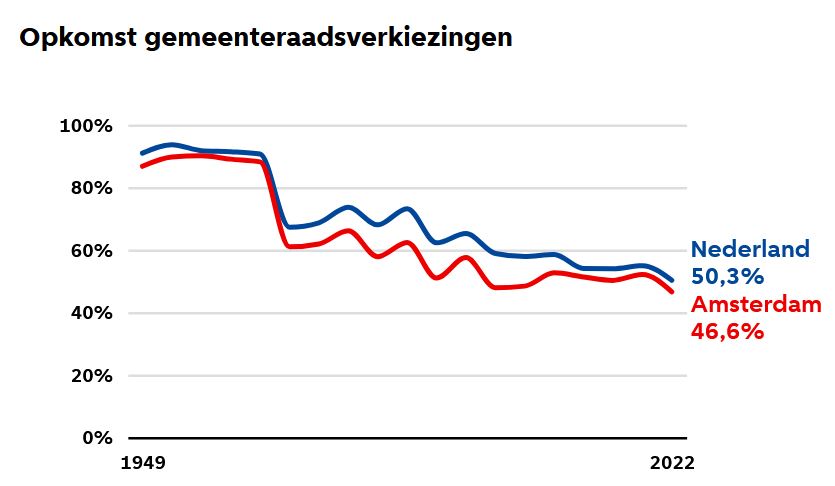The phenomenon of declining political interest is a significant concern, particularly in the context of Amsterdam’s municipal and provincial elections. The psychological warfare for the minds of voters is intense, with numerous double standards contributing to voter disengagement.
Let’s start with this graph (source: https://onderzoek.amsterdam.nl/thema/bestuur.

Municipal Election Analysis (2022): In the 2022 Amsterdam municipal elections, of the 703,714 eligible voters, only 324,869 exercised their right to vote. This indicates that a staggering 378,845 eligible voters either lacked interest or were unable to participate in the voting process.
Provincial Election Analysis (2023): A few months ago, the provincial elections showcased a similar trend. According to the data from Amsterdam Research and Statistics, out of 595,212 eligible voters in Amsterdam, just 304,512 cast their ballots. This leaves 290,700 people, nearly half of the electorate, disinterested or disengaged from the political proceedings in Amsterdam.
Voting Requirements:
The requirements to participate in these elections are outlined by the Dutch government. For detailed information on voter eligibility and the voting process, refer to the official government pages: Voting Requirements in the Netherlands and General Election Information.
Given that approximately half of the eligible population in Amsterdam chooses not to vote, questions arise regarding the effectiveness and representativeness of the democratic process. This lack of participation could reflect a broader disconnection between the electorate and the political system, raising concerns about the health of democracy in the region.
The data from recent elections in Amsterdam reveals a worrying trend of declining voter engagement. This situation calls for a deeper examination of the underlying causes and potential solutions to reinvigorate democratic participation in the city.